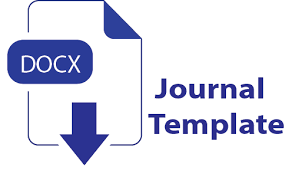Dilalah al-Ma’na al-Siyaqi li Kalimah al-Ajal fi al-Quran al-Karim
DOI:
https://doi.org/10.58223/dzilmajaz.v1i2.81Keywords:
the significance of the contextual meaning, term, Al-QuranAbstract
The Qur’an is a word of God that was revealed to a Prophet, may God’s prayers and peace be upon him, who emerges from darkness into light, and the Qur’an is a guide for man to longevity and internal and external happiness in long life. Semantics is the science that studies meaning, and part of the language, and meaning is six approaches, gifted by the contextual theory . The questions in this research are the number of a word denoting the term in the Holy Qur’an and the contextual meaning of the term in the Holy Qur’an. The objectives of the research are to know the word term in the Holy Quran and to know the significance of the contextual meaning of the word term in the Holy Quran. The research method used is qualitative because all data are in word form. And the results of the research: the word term in the Holy Quran is 48 verses, and the number of the word term is fifty-six. The contextual meaning of the word term in the Holy Qur’an has four meanings: in the sense of time, in the sense of the specified, in the sense of death, and in the sense of cause.
References
Abdurrahman. Taisir Al-Karim Al-Rahman. Mesir: Dar al-Manar, 2004.
Al-’Aisuri, Abdul Fattah Muhammad, and Abdurrahman Muhammad Al-’Aisuri. Manahij Al-Bahts Al-’Ilm Fi Al-Fikr Al-Islami Wa Al-Fikr Al-Hadits. Iskandariyah: Jamiah Iskandariyah, 1997.
Al-Dayah, Faiza. Ilm Al-Dilalah. Beirut: dar Ibn Hazm, 2000.
Al-Mahalli, Jalaluddin, and Jalaluddin Al-Suyuti. Tafsir Jalalain. Mesir: Dar al-Hadits, 2001.
Al-Masithah, Majid abd al-Halim. Ilm Al-Dilalah. Baghdad: Maktabah Wathaniyah, 1985.
Al-Qattan, Mana’. Al-Quran, Muqaddimah Fi Dirasah. Jakarta: al-Kautsar, 1998.
Al-Zamakhsyari. Al-Kasysyaf. Beirut: Dar al-Ma’rifah, 2002.
Amiruddin. Semantik Pengantar Studi Tentang Makna. Bandung: Sinar Biru Algesindo, 2011.
Haidar, Farid Ewad. Ilm Al-DIlalah. al-Qahirah: Maktabah Nahdhah Ilmiyah, 1999.
Karim, Abdul. Tafsir Al=Azhar. Jakarta: Pustaka Panji Mas, 1982.
Katsir, Ibnu. Tafsir Al-Quran Al-Karim. Beirut: Dar al-Fikr, 2012.
Latief, Mohammad Adnan. Tanya Jawab Metode Penelitian Pembelajaran Bahasa. Malang: Unisma Press, 2010.
Majid, Prof Abdul, and S Azkia Hashmi. “A Study of Cosmology and the Quran in the Traditional and Contemporary Tafseer Literature.” Journal of Applied Environmental and Biological Sciences 7, no. 11 (2017): 254–260. https://www.textroad.com/pdf/JAEBS/J. Appl. Environ. Biol. Sci., 7(11)254-260, 2017.pdf.
Mashudi, Kojin. Telaah Tafsir Al-Muyassar. Malang: PT. Cita Intrans Selaras, 2020.
Mofid, Moh., and Mohammad Zainal Hamdy. “Dekontruksi Pendekatan Kritik Sastra Terhadap Al-Quran Perspektif Amin Al-Khuli.” Al-Irfan: Journal of Arabic Literature and Islamic Studies 4, no. 2 (2021): 238–253. http://ejournal.kopertais4.or.id/madura/index.php/alirfani/article/view/5069.
Palmer. Ilm Al-DIlalah. Iskandariyah: Dar al-Ma’rifah, 1995.
Sugiyono. Metode Penelitian Kuantitatif, Kualitatif,Dan R&D. 23rd ed. Bandung: Alfabeta, 2016.
Syihab, Quraisy. Tafsir Al-Misbah. Jakarta: Lentera Hati, 2002.
Umar, Ahmad Mukhtar. Ilm Al-DIlalah. Beirut: Dar al-Fikr, 2015.
Downloads
Published
How to Cite
Issue
Section
License
Copyright (c) 2023 Mabrurrosi Mabrurrosi, Nurul Yakin

This work is licensed under a Creative Commons Attribution 4.0 International License.

